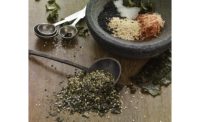
By Dan Malovany
Photos by Vito Palmisano
In Texas Hold ‘em, Seven Card Stud or Five Card Draw, poker players either raise the stakes or make the call. Sometimes it’s a bluff. More often than not, it’s the real deal.
With tortilla sales in supermarkets topping the $1 billion mark for the first time, according to Chicago-based Information Resources, Inc., the diversified industry with dozens, if not hundreds of small- to mid-sized companies, is poised for consolidation or possibly a shake out.
In these tough economic times, surging energy prices and flour, corn and other commodity costs are forcing some players in the industry to show their cards and cash out. For others, the next generation of family members simply wants to do something else.
“It happens in every industry,” notes Nate Fisher, president and CEO of Don Julio Foods. “There are a lot of mom-and-pop operations that have great brands and products, but they’re aging. Some of the great guys in the industry are getting into their 80s, and their heirs don’t want to have anything to do with the business. And, there are smaller companies that are looking for a way to get out. At this time in the tortilla business, you have to eat or be eaten.”
Fisher believes that Don Julio Foods has a hearty appetite for growth. Founded in 1993 by his dad, Craig, “from nothing, just blood, sweat and tears,” the Clearfield, Utah-based company initially sold tortillas co-packed by a manufacturer out of California. As the brand emerged as one of Utah’s very own, volumes grew and freight costs rose, prompting the Fishers to begin producing tortillas in-house in 2002.
Today, production in the 35,000-sq.-ft. operation is running around the clock and up to seven days a week. The corn line cranks out 800 dozen tortillas an hour while two flour lines produce up to 2,800 dozen pieces an hour, depending on the size of the product.
“Over the last five years, we’ve gone from a marketing company where we own the brands to a company that produces product,” Fisher notes.
To make the next step, Don Julio Foods is taking delivery in April of a $3 million, state-of-the art line that will make 3,800 dozen flour tortillas an hour. Additionally, later this year, the company is moving from its current leased facility to a 40,000-sq.-ft. plant that it will own. To minimize any growing pains, the new building is designed for expansion with walls that can be blown out to add additional production capacity or warehouse space.
And there’s more. Within a year, the tortilla producer also hopes to make an acquisition that will make it a multi-plant operator. At least, that’s what’s in the cards right now.
“We have structured ourselves to be in a position to expand to take us to the next level and to be a company that’s going to last,” Fisher says.
Raising the Stakes
Fisher says Thorley is a good fit for Don Julio Foods because he has experience growing small companies into big-time players. For instance, he recently served as president of EnergySolutions Fuel Services, a wholly-owned subsidiary of EnergySolutions, LLC that seeks to exploit worldwide opportunities on the front end of the nuclear fuel cycle. Thorley helped the Salt Lake City company expand from a small business with a couple dozen employees to a major force in the energy industry.
A proponent of the “eat or be eaten” philosophy, Thorley oversees strategic growth and investment for Don Julio Foods, which has 35 employees and around $10 million in annual sales. Fisher handles overall day-to-day operations while Jacob Toscano, director of operations, keeps things running smoothly inside the plant.
Meanwhile, Greg Bingham, vice president, assists Fisher in brand building and sales for the company’s overall business including the Don Julio and Clover Club lines, the latter of which includes six varieties of potato chips and extruded cheese snacks. Clover Club, purchased by the Fishers two years ago, is a heritage brand that has been a nostalgic, hometown favorite for decades.
“We feel we have two powerful brands, and we want to expose the brands in every way possible,” Fisher says.
During the next year, that includes an aggressive new product campaign to broaden Don Julio with salsas and other Mexican foods and co-packed products and extend Clover Club with more full-line offerings that include other salted snacks and dips. The company may even extend into new product categories.
Presently, a local co-packer produces the snacks, along with Don Julio tortilla chips.
“We want to expand our brands into the four corners of the grocery store to make sure we’re playing in the frozen, produce or meat sections of the store, as well as in the interior of the store,” Fisher says. “We feel Don Julio tortilla chips helps us sell more tortillas, and we’ll use partners who can help produce other products that also help sell our current lines. We know what we’re great at, but we know we can’t become all things to all people. We will be looking for people who can produce products like they do our Clover Club products.”
Currently, flour tortillas comprise about 70% of Don Julio tortilla sales, with 8- and 10-in. the top sellers. Its 8-in. tortillas come in 10- and 24-count re-sealable packs while the 10-in. ones come in 8- and 30-packs, the latter package for warehouse clubs. Its corn tortillas come in 36-, 90- and 100- count sizes.
The strategy isn’t fancy, Fisher admits, but it works.
“We try to go to the masses, so we focus on 8- and 10-in. flour tortillas in sales,” he explains. “We can go into organic and all-natural, but that’s not our niche. What we’re focusing on is selling as many tortillas as possible.
“In my opinion, you can get into all of these fringe markets, and they’re great,” he adds. “You can make a huge margin on a half of a pallet, but I’d rather sell 20 truckloads of product at a smaller margin. If we can’t sell by the truckload, then we don’t want to play.”
On the retail side, the company’s products can be found in the Intermountain region, which includes Utah, Idaho, Wyoming, Montana, Nevada and parts of Colorado, Arizona and New Mexico, and its tortillas are distributed locally by Intersate Brands Corp. Don Julio Foods also uses common carrier and customers who pick up their own products. Overall, the packaged tortillas have a 21-day shelf life, which should help because eventually, expansion plans include moving into new geographic markets on a mega-regional or national level.
Fisher explains the company’s core retail market is unique because it consists of a lot of large families who are ideal consumers for Don Julio’s strategy of selling tortillas and snacks in volume. Additionally, he says, two key demographic groups – Hispanics and Mormons - dominate the market.
“Sometimes, people come into this market and overanalyze it,” he notes. “We can’t underestimate the Hispanic growth. On the other hand, you can’t underestimate the white Mormon group. They’re both large and powerful. We’re finding that our corn tortilla sales have doubled over the last year, and we attribute that to the growth in the Hispanic population.”
To enhance shelf appearance, the tortilla producer recently redesigned its packaging, adding brighter colors and stretching the Don Julio name boldly across the front of the bags.
“We wanted to be like Superman, pulling his shirt off,” Fisher says. “We weren’t afraid to show off our ‘S”. We’re not afraid to be Don Julio so our packaging is a lot bolder in the presentation of who we are. We have seen an increase in sales because of the packaging redesign.”
Although retail makes up the majority of sales, the fast-growing foodservice channel is catching up quickly.
“It’s a great opportunity, but you have to be like a physician or surgeon. You can’t make mistakes,” Fisher notes. “You’ve got to have the right instruments, you have to understand what they need and you can’t ever screw up because malpractice insurance doesn’t work in the tortilla business.”
Some Like it Raw
Yes, raw tortillas.
“A certain number of restaurants want to purchase them raw and cook them [in a skillet] at the restaurant level,” Bingham explains. “They’re not partially baked. They are cooked at the restaurant. That’s becoming a huge part of our business.”
Each week, Don Julio Foods uses about three loads or 150,000 lbs. of flour, which is stored in a 90,000-lb. silo inside the plant. During SF&WB’s recent visit, the company was producing 12-in., burrito-sized raw flour tortillas.
To make tortillas, the company uses what Fisher calls a “secret sauce,” which differentiates Don Julio products from the competition. Instead of using batch packing, the operation combines all minor- and micro-ingredient handling in-house. An 800-lb. horizontal mixer or a 400-lb. spiral system feed the two flour lines and its eight-pocket divider. After a 10- to 12-minute intermediate proof, the dough balls pass down four shoots to the line’s press.
The raw products, however, bypass a three-pass oven and are hand flipped onto the conveyor, then dabbed with water and dusted with rice flour to prevent sticking during packaging.
After hand bagging, the packages are heat-sealed, pass through metal detection and loaded into cartons or breadbaskets for distribution.
The new line, Fisher notes, will have a 1,000-lb. horizontal mixer and a larger piston divider that can crank out the greater volume of flour tortillas. The line comes with a 52-in. press and a full complement of automatic counters and packaging equipment.
When the new production line fires up, Fisher adds, Don Julio Foods will be able to compete against players of all sizes.
“People think we’re bigger than what we are, but at the same time, we can go nimble and say we’re like Tom Sawyer and Huckleberry Finn,” Fisher says. “We’re unique in how we’re structured. Our brands are very powerful, but there is a little guerrilla marketing in our tactics that has made us very successful.”
Looks like it’s time for Don Julio Foods to show its cards and play its hand.

